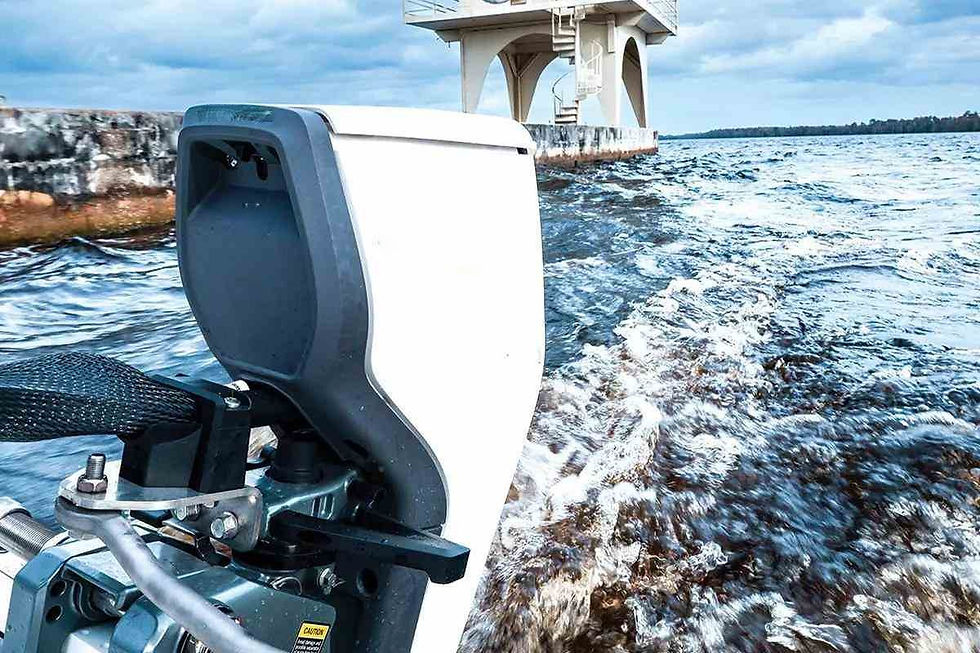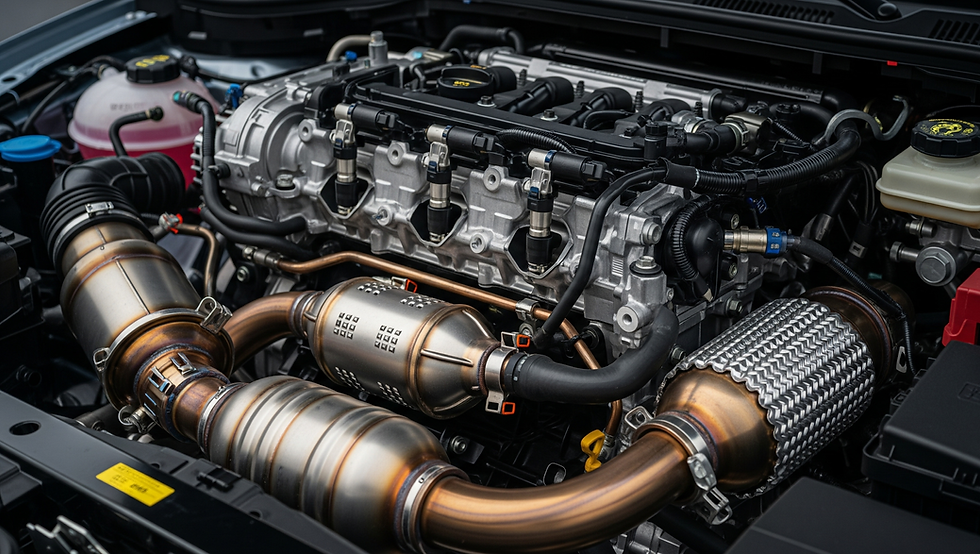Electric Marine Engines: Are Indian Manufacturers Ready?
- Raktim Das
- Jul 19
- 3 min read
Updated: Aug 5
The world has strongly leaned toward electric engines. Whether it's cars or bikes, the popularity has increased over the years. The global trends towards sustainability are making consumers more aware of how their choice impacts the environment. This change has also influenced the marine industry. Electric marine engines are considerably fuel-efficient and eco-friendlier than traditional diesel or gasoline vessel engines. However, one question still remains while the trend is shifting! Are marine engine manufacturers in India ready to adapt to this technological change?

This article explores this to its core:
What is the importance of Electric Marine Engines?
Most traditional engines run on diesel, with some smaller ones using gasoline. Commercial marine vessels are heavy, which requires adequate power provided by diesel combustion. But when the vessels are using the fuel, there are times when the fuel doesn’t burn completely. The engines end up releasing harmful pollutants, including carbon monoxide, soot, and unburnt hydrocarbons, into the environment.
An electric engine, on the other hand, features
Zero Emissions at Point of Use: They don't release CO₂, NOx, or SOx, and keep the waterways and coastal ecosystems eco-friendly.
Lower Operating Costs: The operating cost of a battery-powered engine is cheaper than that of a diesel-powered engine. And they also require less maintenance.
Noise-free Operation: The sound of marine vessels can impact marine life. Electric engines are noise-free, which is especially valuable for tourism boats, inland cargo vessels, and river ferries.
Regulatory Compliance: IMO and domestic marine authorities are pushing for greener alternatives in commercial fleets.
Thus, it has become essential for Indian marine engine manufacturers to focus on developing engines powered by electricity.
Challenges for Indian Manufacturers
While the government is trying to encourage marine engine manufacturers to develop electric vehicles, there are still some challenges.
For instance:
1. Inadequate Marine-Specific Battery Technology:
Most commercial ships stay on the ocean for weeks or even months. This raises a concern about whether the battery can withstand the saltwater. Moreover, the weight of batteries generally increases with the capacity. However, the batteries need to be lightweight and fire-safe for long-distance travel.
2. Infrastructure Gaps:
As a new trend, there is still a gap in the infrastructure. If you do a bit of research, you will find most harbors and inland docks don't have proper infrastructure, like charging ports or grid access.
3. Unclear regulations
Since it is still not a mainstream thing, there is no dedicated electric marine propulsion policy in India. It becomes a problem for manufacturers as they lack clear compliance guidelines.
4. High Initial Costs:
As a relatively new technology, the initial setup cost can be pretty high, which is a major concern for marine engine manufacturers. Electric marine engines are also more expensive than diesel options, especially for larger vessels.
Are there any future opportunities for electric marine engines?
Yes, definitely. Marine engine manufacturers in India are actively trying to gain resources and support using various means, such as:
Collaborations with Global Firms: Sustainability practice has become a global practice. Even global manufacturers are trying to explore electric marine engines. Partnering with international electric marine tech leaders can help accelerate local expertise.
Focusing on Small Craft First: While it may take longer to develop the right electric engine for larger vehicles, it may not be the case for smaller ones. For instance, marine engine manufacturers can manufacture motors for tourism boats, fishing vessels, and inland cargo ships. This is much more feasible.
Make-in-India Boost: With government support, Indian marine OEMs can scale domestic battery, motor, and control system production for marine applications.
Final Thoughts
Opting for electric marine engines is an initiative not just for marine engine manufacturers. It is a joint venture amongst the manufacturers, government, investors, and buyers to take a step toward achieving sustainability goals. With the right infrastructure, regulation, and technological advancement, electric marine engines may become the future.



Comments